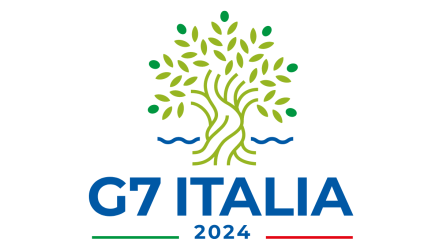On January 1, 2024, Italy assumed the G7 Presidency for the seventh time, gearing up to host the 50th G7 Summit from June 13-15 in Apulia, Italy. The event will gather leaders from the G7 member states—Canada, France, Germany, Italy, Japan, the UK, and the USA—as well as representatives from the European Union.
Italy has also invited several states and international organizations to the Outreach Session of the summit. This will mark India’s 11th participation, with Prime Minister Narendra Modi attending for the fifth time.
India’s Participation in the G7
India has participated in ten G7 Outreach Sessions, beginning in 2003 in France and continuing through various host countries, including the UK, Russia, Germany, Japan, Italy, France, and most recently, Germany (2022) and Japan (2023). Indian participation has consistently been at the Prime Minister level, underscoring the country’s high-level commitment to the summit’s objectives.
Focus Areas for the 50th G7 Summit
The 50th G7 Summit will feature two Outreach Sessions focusing on key areas such as the Indo-Pacific, Africa, climate change, the environment, migration, and artificial intelligence. India’s invitation to these sessions highlights its growing importance on the global stage.
India’s significance is evident in several ways:
– As the world’s fifth-largest economy, India’s GDP surpasses those of three G7 member countries—France, Italy, and Canada.
– Following its successful G20 Presidency, India has emerged as a strong advocate for the Global South.
– At previous G7 Summits, India has consistently highlighted issues pertinent to the Global South.
India’s Contributions at Previous G7 Summits
At the 2023 G7 Summit in Hiroshima, PM Modi participated in three plenary sessions that addressed multiple crises, climate resilience, and global peace. India’s contributions to global initiatives, such as the Lifestyle for Environment (LiFE), the International Year of Millets, and the Millets and Other Ancient Grains International Research Initiative (MAHARISHI), were recognized in the “Hiroshima Action Plan for Resilient Global Food Security.”
Evolution of the G7
The G7 originated as the G6 in 1975 in response to the first oil crisis, with Canada joining the following year. From 2010 to 2014, Russia’s inclusion briefly expanded the group to the G8. The G7 operates without a formal charter or secretariat, relying on the presidency to set the annual agenda. Collectively, the G7 nations represent nearly 45 percent of global GDP and over 10 percent of the world’s population.
Originally focused on economic issues, the G7 has evolved into a platform for addressing broader global challenges, including peace and security, counter-terrorism, development, education, health, environment, and climate change. Since 2003, the G7 has invited non-member countries, particularly from Asia and Africa, to participate in Outreach Sessions. These sessions foster international cooperation and have expanded to include interactions with non-governmental stakeholders on business, civil society, labor, science, academia, women’s rights, and youth.
